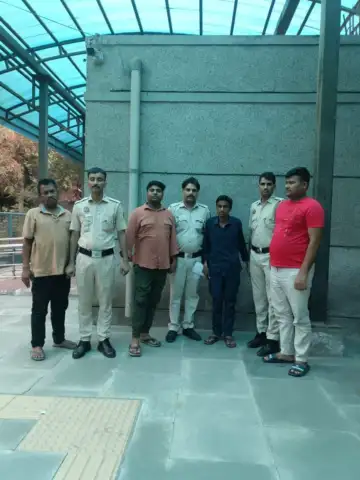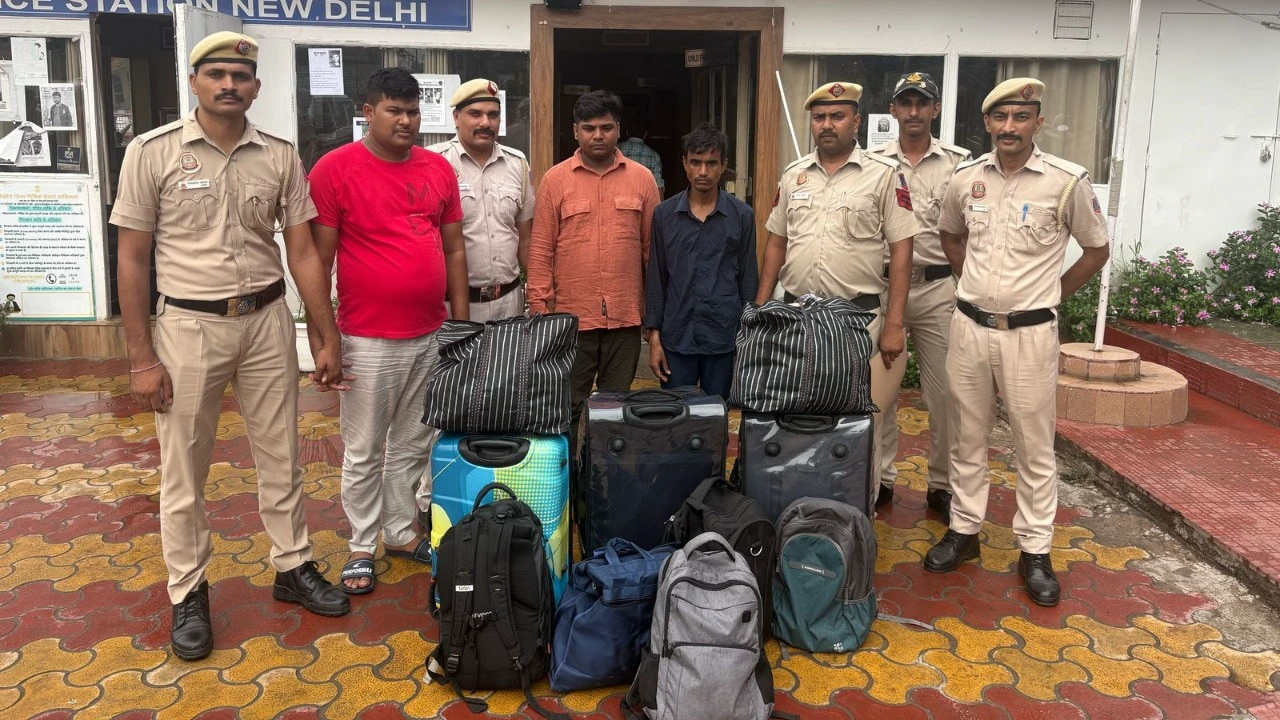The Delhi Police on Monday busted an interstate gang of bag lifters that specifically targeted black and blue luggage around railway stations.
Four gang members have been arrested, and 12 stolen bags have been recovered.
The gang’s latest theft was reported on July 3, when the railway enquiry received a complaint about the disappearance of five bags from coach A-1 of the Shri Mata Vaishno Devi Katra SF Express at New Delhi Railway Station, as reported by the news agency PTI.
“Based on the complaint, an FIR was registered, and a probe launched,”a senior police officer said to PTI. “On reviewing CCTV footage, our teams tracked the suspects to a hotel in Paharganj,” the officer further said.
The gang operated primarily in high-footfall areas near railway stations in the national capital. Their strategy hinged on a calculated tactic. They deliberately targeted black and blue bags, which are not only commonly used but also difficult to trace on CCTV footage. These colours helped the gang evade surveillance and deceive hotel staff by blending in with regular travellers.
 The gang members lived close to the stations and posed as cloth merchants, routinely ferrying multiple bags in and out of the area to avoid suspicion.
The gang members lived close to the stations and posed as cloth merchants, routinely ferrying multiple bags in and out of the area to avoid suspicion.
Their unique method involved stealing black or blue bags, emptying them in hotel rooms, and then transferring the stolen items into their own bags. The emptied stolen bags were later abandoned at the station. This misdirection created significant confusion for the police and CCTV analysts, making the stolen luggage nearly indistinguishable from legitimate baggage.
The gang also used safe houses near the Badarpur-Faridabad border to stash looted goods before selling them in grey markets.
“The accused were highly organised. They frequently changed SIM cards, mobile phones, and used aliases during hotel check-ins to avoid leaving a digital trail,” the officer added.
All the arrested individuals have a history of serious criminal offences, including theft, robbery, violations of the Arms Act, and narcotics-related cases.
